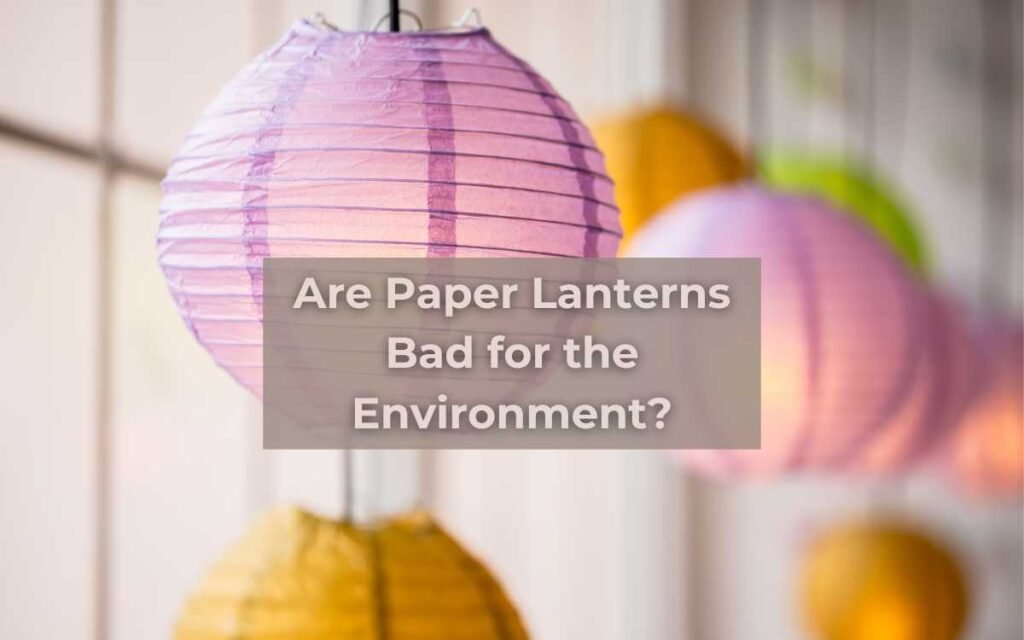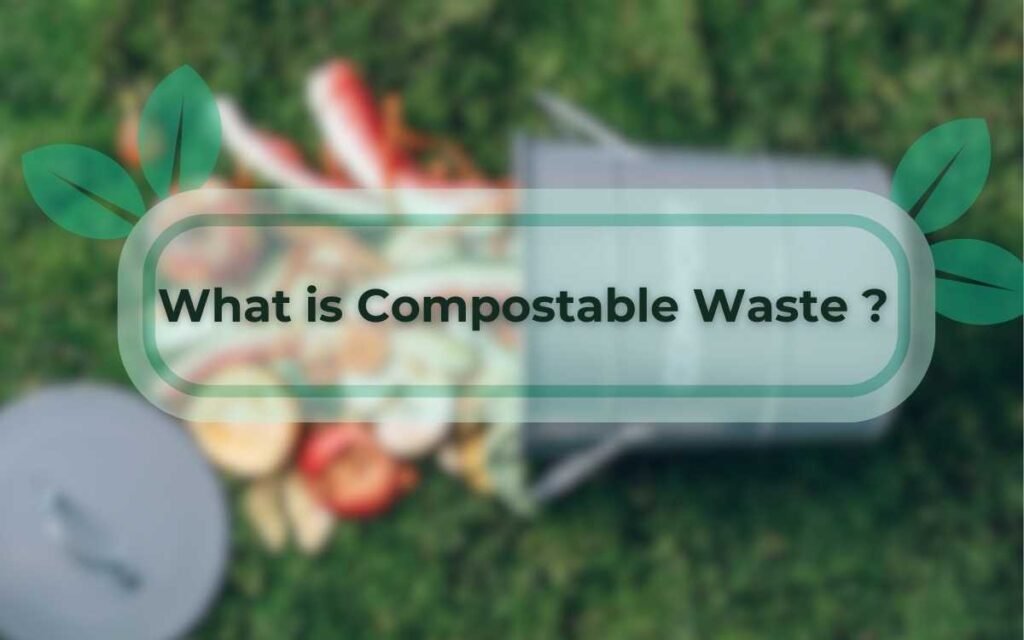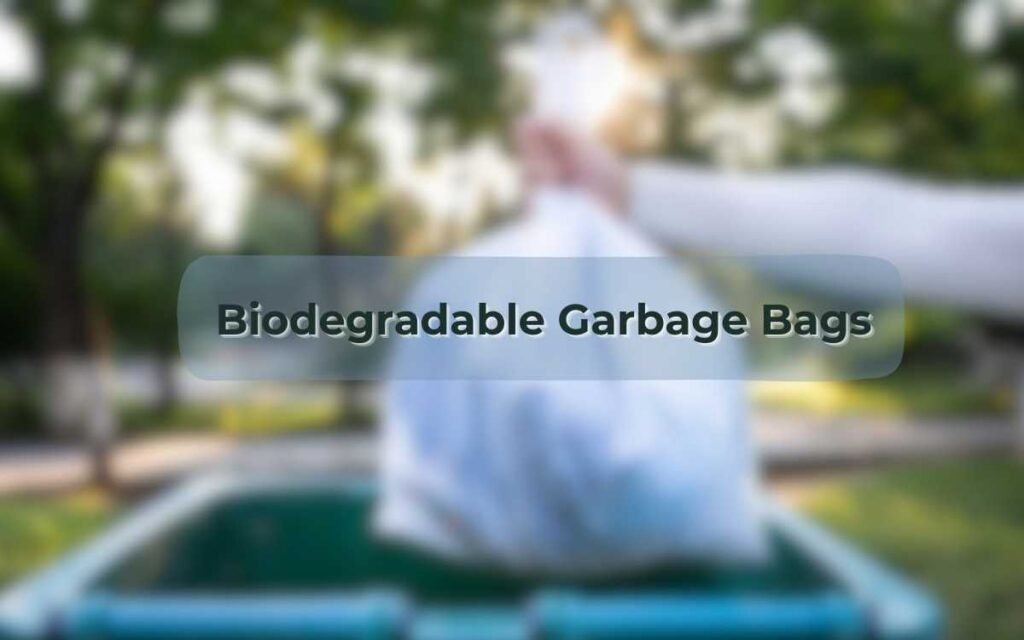
- Introduction
- What Exactly Are Biodegradable Garbage Bags?
- Are These Garbage Bags a Good Choice?
- How Should You Dispose of Biodegradable Garbage Bags?
- Do These Garbage Bags Really Break Down?
- How Long Does It Take for Garbage Bags to Decompose?
- Where Can You Find Biodegradable Garbage Bags?
- Are Biodegradable Bags the Same as Compostable Bags?
- What Materials Are Compostable Garbage Bags Made From?
- Can Biodegradable Poop Bags Go in Compost?
- Are Compostable Garbage Bags Environmentally Friendly?
- Which Is Better: Biodegradable or Compostable?
- Bottom line
Introduction
Have you ever thought about how much impact your trash bags have on the environment? A stats show that traditional plastic bags can take up to 1,000 years to decompose in landfills, contributing significantly to long-term environmental pollution. If you’re looking for a more eco-friendly option, biodegradable garbage bags could be your new choice.
Let’s explore what they are and why they’re worth considering.
What Exactly Are Biodegradable Garbage Bags?
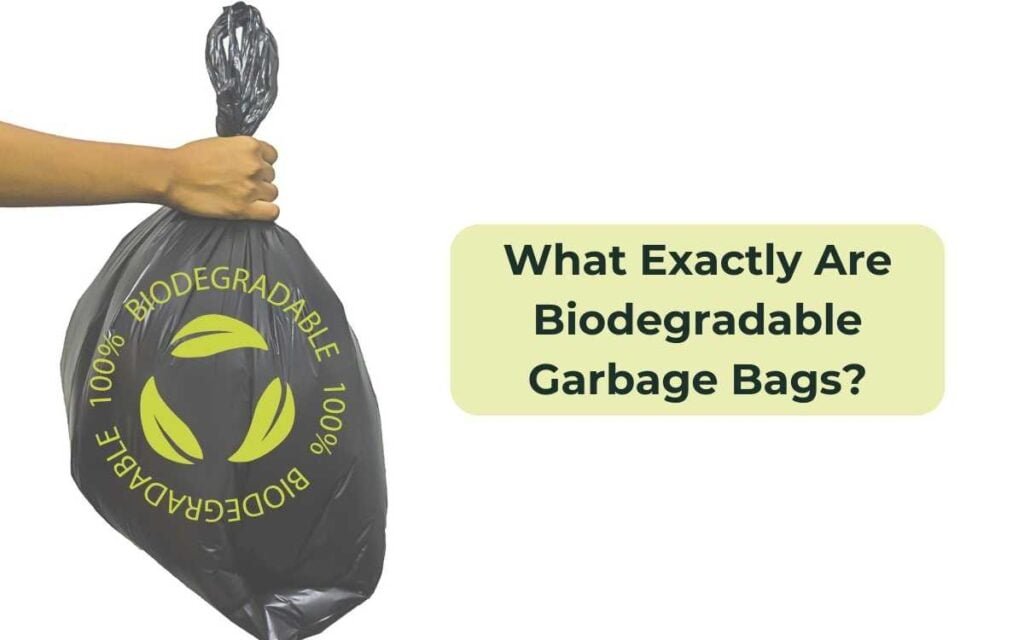
Unlike conventional plastic bags last for centuries, biodegradable options offer a sustainable alternative. These bags are specifically engineered to decompose naturally over time. They are made from materials that break down quickly when exposed to sunlight and moisture. Thus, alleviating the burden of plastic waste.
Are These Garbage Bags a Good Choice?

Absolutely! By choosing biodegradable bags, you help reduce plastic waste that ends up in landfills and oceans. These bags break down into harmless substances over time. Thus, making them much better for the environment than regular plastic bags that last for hundreds of years.
How Should You Dispose of Biodegradable Garbage Bags?

Dispose these garbage bags the same way you would regular trash bags. If you have organic waste, using biodegradable bags for this purpose is ideal. Consider placing them in a compost bin to accelerate their decomposition. This reduces waste sent to landfills. It also makes compost for gardening and farming. Composting garbage bags that are biodegradable closes the loop on waste. It promotes a sustainable way to manage household trash.
Do These Garbage Bags Really Break Down?

Yes, these bags are designed to break down. But, the rate can vary based on the conditions they encounter. Ideally, these bags will decompose best where oxygen is present. This includes places like a compost pile or a landfill with airflow.
Look for certifications. They confirm biodegradability. They ensure the products meet environmental standards. This ensures that they will break down into natural components well. It minimizes their impact on the environment compared to traditional plastic bags.
How Long Does It Take for Garbage Bags to Decompose?

These bags can decompose at varying rates depending on their environment. In a well-managed composting facility, the bags may break down. The facility needs to have ideal temperature, moisture, and oxygen levels. This can happen within a few months. This is because composting facilities create ideal conditions for microorganisms. They can efficiently break down organic materials, including biodegradable plastics.
However, in a landfill oxygen levels are lower. Decomposition is slower. So, biodegradable bags take significantly longer to decompose. It could range from several months to a few years, depending on the specific conditions of the landfill and the composition of the bag itself.
Where Can You Find Biodegradable Garbage Bags?

You can find biodegradable garbage bags at many grocery stores, large retailers, and online platforms like Amazon. When shopping, look for bags labeled “biodegradable” or “compostable.” This way, you can ensure they meet your environmental goals. These labels guarantee the bags will break down naturally. This reduces their impact on the environment compared to traditional plastic bags. Whether you prefer shopping in person or online, you can find these garbage bags. They help you make a more eco-friendly choice for your household waste.
Here’s a closer look at the materials
- Cornstarch: One of the most common materials, cornstarch is derived from corn kernels. It’s a renewable resource that decomposes naturally, providing a perfect base for compostable bags.
- Potato Starch: Similar to cornstarch, potato starch is another plant-based material that is biodegradable. It offers a sustainable alternative to plastic and helps reduce waste.
- PLA (Polylactic Acid): PLA is made from fermented plant sugars, usually sourced from corn, sugarcane, or cassava. It’s a type of bioplastic that is compostable and biodegradable, making it an ideal material for compostable bags.
- PBAT (Polybutylene Adipate Terephthalate): Although not entirely plant-based, PBAT is a biodegradable polymer that is often blended with PLA to enhance the flexibility and strength of compostable bags. It decomposes more quickly than traditional plastics.
Are Biodegradable Bags the Same as Compostable Bags?

Not exactly. All compostable bags biodegrade. But, not all biodegradable bags can be composted. Compostable bags are designed to break down in a composting environment becoming nutrient-rich compost. They undergo a specific process that converts them into organic matter that can enrich soil.
But, biodegradable bags break into smaller pieces over time. This happens when they’re exposed to natural elements like sunlight and moisture. They do eventually degrade.
But, they may not fully become compost that enriches soil. Compostable bags are for sustainable composting. Biodegradable bags offer a greener alternative to traditional plastics. But, they may not make usable compost.
What Materials Are Compostable Garbage Bags Made From?
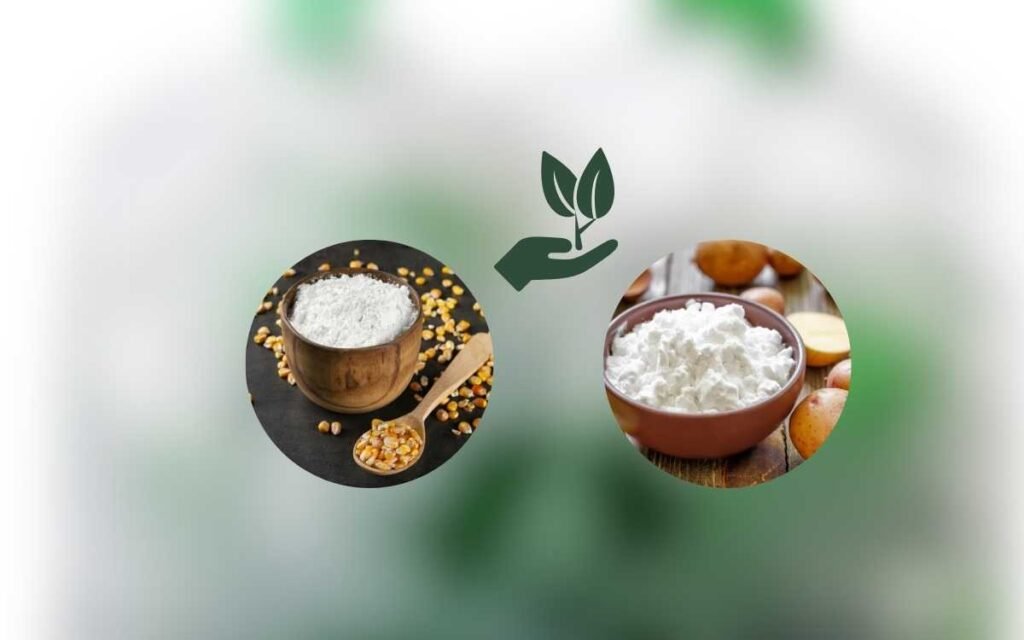
Compostable garbage bags are usually made from renewable, plant-based materials like cornstarch or potato starch. These materials are chosen for their ability to break down entirely and safely in composting systems. Compostable bags use plant-based sources. They are a sustainable alternative to plastic bags which can reduce reliance on fossil fuels and environmental impact.
Can Biodegradable Poop Bags Go in Compost?

Whether biodegradable poop bags can be composted depends on their specific design and labeling. Some biodegradable poop bags are indeed compostable and are designed to break down safely in composting systems. It’s crucial to check the packaging or labeling to confirm if the bags are certified as compostable.
However, it’s important to handle pet waste responsibly when composting. Pet waste can contain harmful pathogens that may not be completely eliminated in home composting systems.
If you choose to compost biodegradable poop bags, use a dedicated composting system for pet waste. Also, check local rules for safe disposal methods. This ensures you manage waste in a green way. You also prioritize safety and hygiene.
Are Compostable Garbage Bags Environmentally Friendly?

Yes, compostable garbage bags are highly environmentally friendly. They are usually made from renewable plant-based materials, like cornstarch or potato starch. By opting for compostable bags, you contribute to several positive impacts on the environment. They reduce our reliance on finite fossil fuels.
Compostable bags decompose into natural components. They don’t leave behind harmful residues or microplastics. So, they minimize plastic pollution. Moreover, the matter produced during decomposition is organic. It enriches soil quality. It makes soil more fertile and better for plants.
Compostable garbage bags are an excellent choice. They help reduce your environmental footprint and promote sustainable waste management.
Which Is Better: Biodegradable or Compostable?

Both biodegradable and compostable bags are eco-friendly alternatives to plastic bags. But, the better option depends on your needs and circumstances:
Compostable Bags
These are ideal if you have access to composting facilities or if you compost at home. Compostable bags are made to break down into nutrient-rich compost. This compost can enrich soil and help plants grow. They contribute directly to sustainable gardening and agriculture practices.
Biodegradable bags
These are a great choice. They are more eco-friendly but suitable if you lack access to composting. Biodegradable bags break down naturally over time. They do this when exposed to natural elements like sunlight and moisture. They typically break into smaller pieces. The worms do not make usable compost. But, they cut plastic waste and harm. This is better than traditional plastics.
In the end, the choice is between biodegradable and compostable bags. It depends on whether you prioritize making compost for gardening. Or, do you just want to reduce plastic waste? Both options help the environment. They reduce reliance on fossil fuels and minimize plastic pollution.
Bottom line
In conclusion, making the switch to biodegradable or compostable garbage bags is a small step that can have a big positive impact on our planet. Next time you shop for trash bags, consider choosing one that helps protect our environment. Together, we can make a difference!


